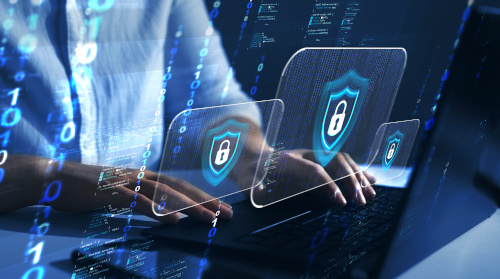Cybersecurity is a priority concern for most people accessing the internet. Unfortunately, students aren’t thinking about cyberattacks when they access sites for curriculum, research, and entertainment from their 1:1 devices–devices that are now so prevalent since the pandemic.
Schools’ exposure to cyberattacks has also greatly increased due to expanded remote and hyperflex learning.
Join eSchool News and a panel of experts to learn the latest strategies and tools schools are using to help keep student data safe and ensure students’ digital access is secure.
Key takeaways:
- Learn the latest techniques to secure district systems
- Discover best practices for educating students and families on proper digital etiquette
- Ask cybersecurity experts about your data protection concerns
More from eSchool News

Our school has been using online learning since the mid-1990s when we became one of the first to sign up for VHS Learning. Since then, we’ve expanded our use of the program and involved more students.

The pandemic saw countless education institutes scramble in a bid to offer remote learning, which just highlighted how ill-prepared they were for future learning.

The new school year is upon us, and IT teams are ramping up strategic tech investments and systems to help ensure a smooth year ahead.

Inflation hit a four-decade high in the United States during September, with the consumer price index up 8.2 percent from a year earlier. While most adults are painfully aware of higher prices for everything from food to fuel, teens may be blissfully ignorant.

Digital equity in the classroom goes far beyond the need to deliver internet connectivity and devices. All students need and deserve a safe, reliable, and adaptable edtech ecosystem to support and nurture their learning experience.


/
Cybersecurity is a priority concern for most people accessing the internet. Unfortunately, students aren’t thinking about cyberattacks when they access sites for curriculum, research, and entertainment from their 1:1 devices–devices that are now so prevalent since the pandemic.

Schools do so much for a community. They provide a safe place for children to learn and grow each day, filled with educators who truly care. However, as a parent or educator, it’s important to understand that many schools aren’t being used to their full potential.

In 1997, the National Reading Panel issued a report on the findings of dozens of studies looking into the most effective methods of teaching and learning reading. The report offered specific recommendations for effective practices, such as intentional and explicit phonics instruction for all students.

While the effects of COVID-19 may have diminished for many thanks to widespread vaccine- and infection-induced immunity, the pandemic continues to have a significant systemwide impact and exacerbate social gaps.

When I conduct training for school employees, I like to start my presentations speaking in a “normal” voice. About halfway in, I turn on the instructional audio solution that is set up in the room.
Want to share a great resource? Let us know at [email protected].






More Stories
Education for all: Is the world on track? Some personal reflections on the first EFA Global Monitoring Report, 20 years back
There’s Only One Thing Better Than Proctoring
Top 20 C# courses for a long-lasting future in programming